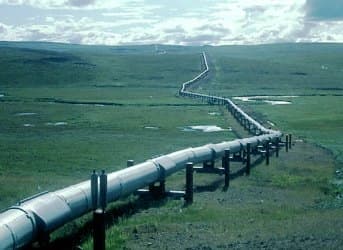Canadian Natural Resources Minister Joe Oliver said last week it was time to add more diversity to an energy sector that relies almost exclusively on the United States. New drilling technologies for shale have translated to major gains in U.S. oil and natural gas production, which itself translates to a U.S. economy that relies less on imports to meet its energy demands. That's forced Oliver to stand up and take notice. He told the audience at an energy conference in New York his country has the resources necessary to help meet the growing energy demands across the world. Five years after TransCanada first proposed its Keystone XL oil pipeline, Oliver's comments suggest North American market dynamics may be different for Canada.
"Canada has the resources in place to meet its own needs and the growing energy demands of global markets," he said. "We are aggressively working to enhance Canada’s position as a stable, secure and environmentally responsible energy supplier to North America and the world."
Related Article: Canada Ramps up Pipeline Plans
Back home in Calgary, he said diversity in the Canadian export market was necessary because virtually all of its oil and natural gas exports head to the United States. Production momentum there, he said, means Canada's influence as an energy partner is starting to wane.
The U.S. Energy Department said in its short-term market report crude oil net imports for the fourth quarter of the year should be 13 percent less than the same period in 2012. The forecast for fourth quarter 2014 imports is 5.95 million barrels per day, or nearly 25 percent less than fourth quarter 2012. The report said U.S. total crude oil production, meanwhile, should average 8.4 million bpd next year. A similar scenario is envisioned for natural gas, which the United States is preparing to export in the form of liquefied natural gas.
Supporters and detractors of the Keystone XL oil pipeline made their voices known Thursday, the 5th anniversary of TransCanada's permit application to the U.S. State Department. TransCanada needs a federal permit to build the section of the pipeline that would cross from Alberta oil fields into Montana. American Petroleum Institute President Jack Gerard said Keystone XL would displace oil from "unstable parts of the world" with North American crude. But by Oliver's own admission, production gains in the U.S. market means "it will need Canadian resources less in the future."
Related Article: Obama’s Latest Comments Cast Even More Doubt on Keystone XL Approval
Oliver mid-September touted the potential economic benefits from TransCanada's Energy East pipeline proposal. That project would stretch some 2,700 miles from oil fields in Alberta and Saskatchewan to eastern Canadian refineries, which currently rely on foreign imports. TransCanada said the pipeline would deliver 1.1 million bpd to eastern refineries, nearly 25 percent more than Keystone XL. The Canadian government estimates Energy East would generate more than $30 billion in gross domestic product and another $9.7 billion in tax revenue.
When Keystone XL was first proposed, the United States was producing about 5 million barrels per day. In August, the United States produced 7.6 million bpd, the highest monthly level in 24 years. Against the backdrop of clamoring over job prospects, energy security, pipeline corrosion and greenhouse gas emissions is the changing dynamic in the North American energy market since Keystone XL was put on the table. Oliver's comments show the Canadian economy is starting to ponder a future that's less coupled to the U.S. energy market. TransCanada, with its domestic proposal, is already hedging its bets.
ADVERTISEMENT
By. Daniel J. Graeber of Oilprice.com



















Canada should build pipelines to the east and west coasts to assure a more competitive marketplace in the future. Why it took so long to realize a better strategy is scary.
An the Asian and European sales advantage of both LNG and crude ,instead of one American buyer makes a lot more sense. The existing pipelines to the U.S. will continue but Canada's energy program would not be held hostage when U.S. buyers demand cheaper prices.
Canada does a lot of things right but always seems to take an awful long time to get good policy in place. In the case of pipelines , this should have begun 5 years ago.